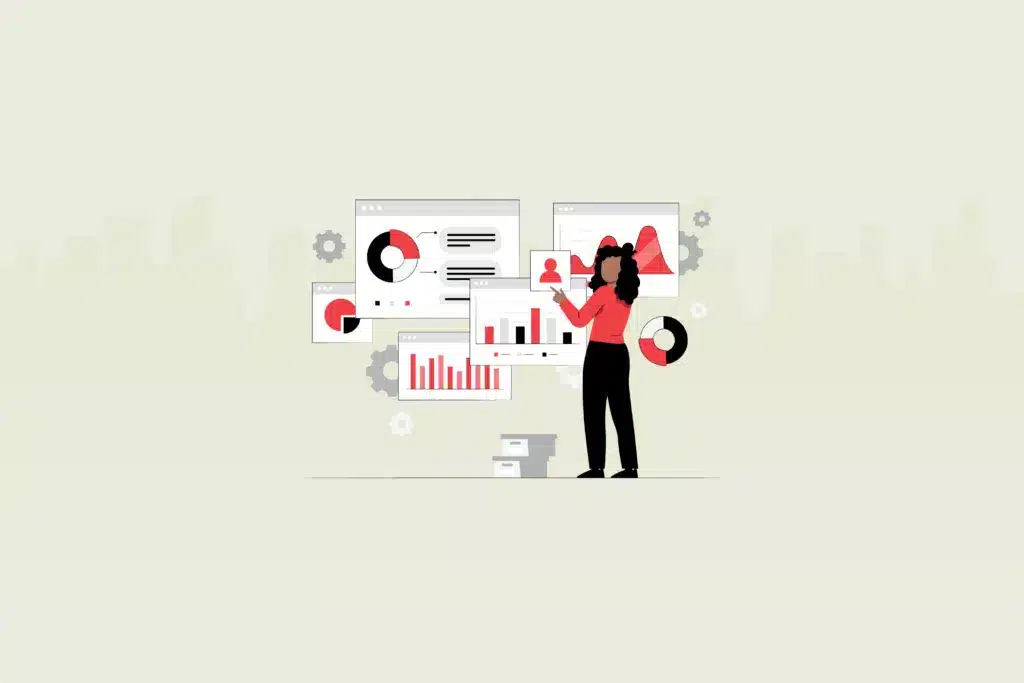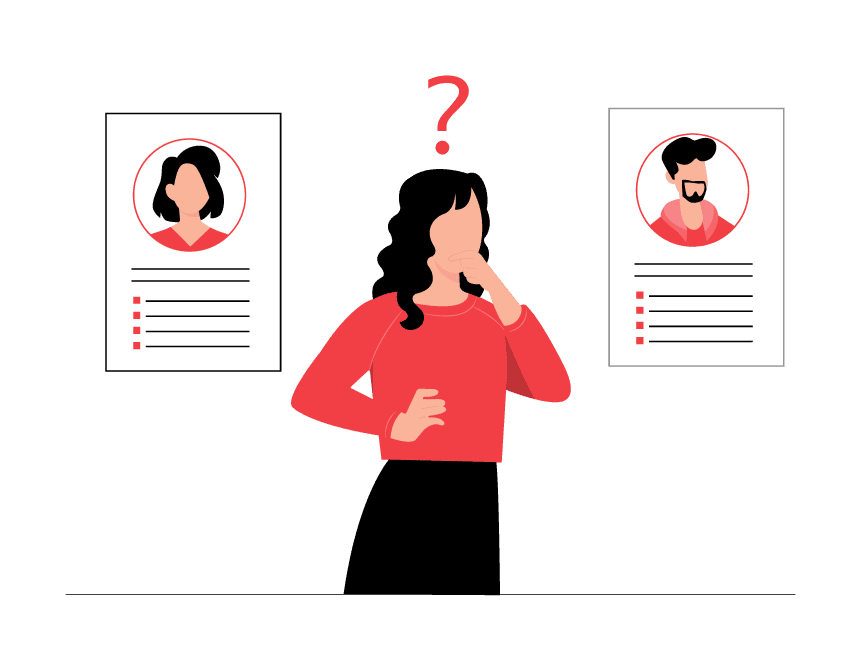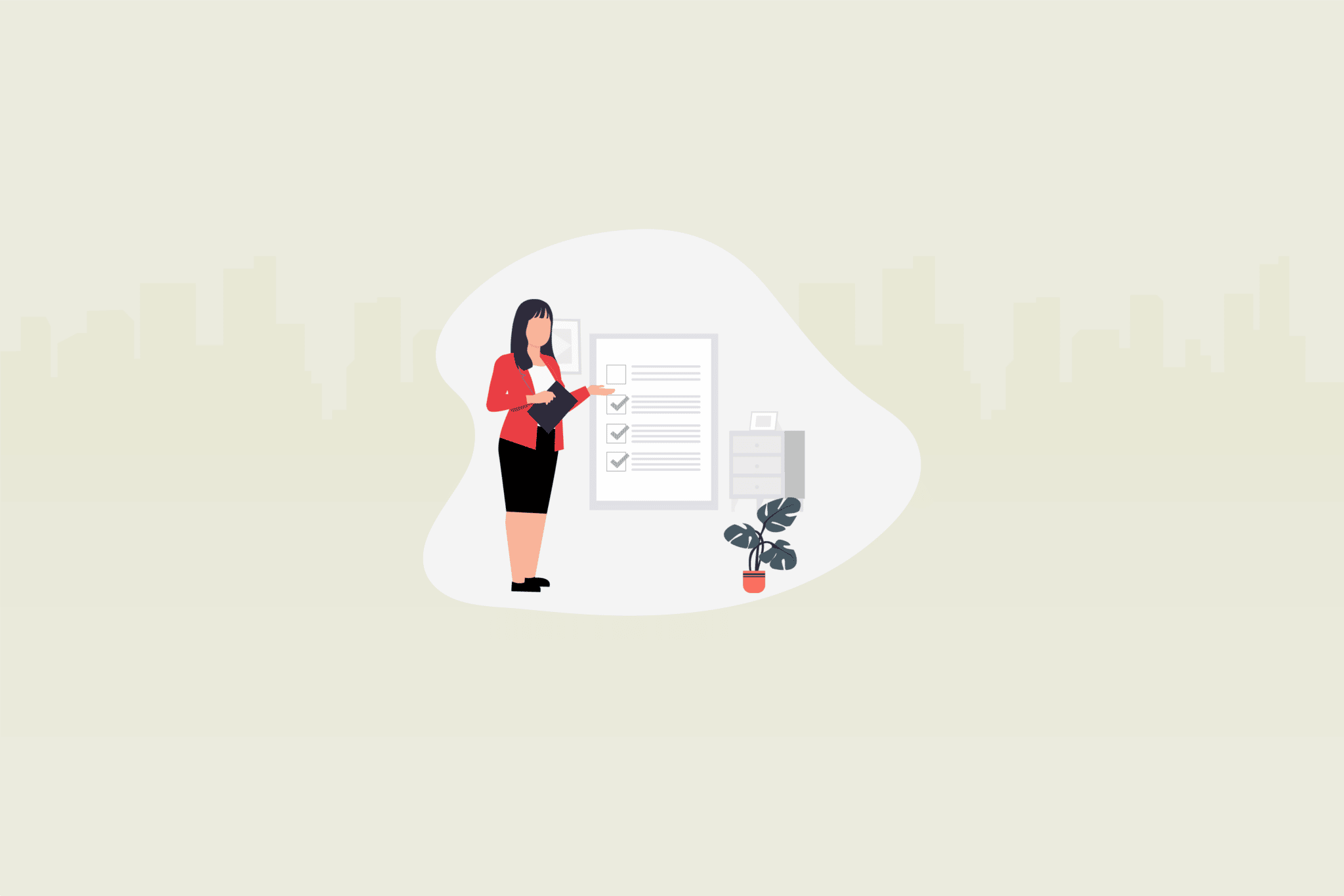In today’s rapidly evolving business landscape, conferences play a pivotal role in fostering collaboration, knowledge sharing, and industry networking. As organizations strive to stay ahead of the competition, the demand for skilled Conference Planners has seen a notable surge. Recent analytics reveal a significant increase in the recruitment of Conference Planners, with companies recognizing the strategic importance of meticulously organized and engaging events.
This shift is driven by the realization that well-executed conferences can not only enhance brand visibility but also serve as catalysts for business growth and innovation. In this dynamic recruiting landscape, HR professionals and CXOs are actively seeking professionals who possess a unique blend of project management expertise, creativity, and exceptional communication skills. To effectively navigate this field and select the right candidates, it is crucial to pose insightful interview questions that assess both the technical prowess and the creative mindset of Conference Planners.
Here are the top 60 Conference Planner interview questions to ask job applicants:
15 general interview questions for the Conference Planner
- Can you walk us through your experience in planning and executing conferences?
- How do you approach the initial planning phase of a conference?
- What strategies do you employ to ensure effective budget management for conferences?
- How do you go about identifying and selecting suitable venues for conferences?
- Can you share an example of a challenging situation you faced while planning a conference and how you resolved it?
- How do you ensure seamless coordination and communication among various stakeholders involved in a conference?
- What steps do you take to ensure a smooth registration and attendee management process?
- How do you handle unexpected changes or last-minute requests during a conference?
- Can you discuss your experience in negotiating contracts with vendors and suppliers for conference-related services?
- How do you incorporate innovative ideas and technologies into conference planning to enhance the attendee experience?
- What metrics do you use to measure the success of a conference, and how do you analyze and report on those metrics?
- Can you describe a time when you had to work with a limited budget to plan a successful conference?
- How do you stay updated with the latest trends and best practices in conference planning?
- How do you manage the logistics and timeline of conference setup and teardown?
- Can you provide an example of a unique and memorable conference experience you created, and what made it stand out?
5 sample answers to general interview questions for the Conference Planner
- Can you walk us through your experience in planning and executing conferences?
look for: Look for candidates who can demonstrate a track record of successfully organizing and executing conferences from start to finish.
Sample answer: “In my previous role as a Conference Planner at XYZ Events, I was responsible for planning and executing a wide range of conferences, ranging from small industry-specific gatherings to large-scale international conventions. I collaborated with cross-functional teams, managed logistics, coordinated with vendors, and ensured the seamless execution of each event. One notable conference I organized was the Annual Tech Summit, which hosted over 500 attendees and featured renowned keynote speakers, interactive sessions, and networking opportunities. The event received positive feedback from participants, and attendee satisfaction surveys reflected a high level of engagement and value.”
- How do you approach the initial planning phase of a conference?
look for: Look for candidates who can demonstrate strong organizational and project management skills, as well as an understanding of the importance of thorough planning.
Sample answer: “When initiating the planning phase of a conference, I start by clearly defining the objectives and goals of the event in collaboration with stakeholders. I conduct comprehensive research to identify target audiences, suitable dates, and potential venues. I create a detailed project timeline, outlining key milestones and deadlines. Additionally, I establish a budget and conduct vendor research to ensure optimal resource allocation. By meticulously planning each aspect, I set a strong foundation for a successful conference.”
- How do you handle unexpected changes or last-minute requests during a conference?
look for: Look for candidates who can demonstrate flexibility, adaptability, and strong problem-solving skills.
Sample answer: “During conferences, unexpected changes or last-minute requests are not uncommon. When faced with such situations, I remain calm and quickly assess the impact on the overall event. I proactively communicate with the stakeholders involved, including the client, vendors, and internal team members, to determine the best course of action. In one instance, a keynote speaker canceled due to unforeseen circumstances. I swiftly reached out to my network and secured a replacement speaker who was highly knowledgeable and well-received by the attendees. By efficiently managing unexpected changes, I ensure the seamless continuation of the conference without compromising its quality or attendee experience.”
- Can you describe a time when you had to work with a limited budget to plan a successful conference?
look for: Look for candidates who can demonstrate resourcefulness, cost-effective decision-making, and creativity in maximizing outcomes within budget constraints.
Sample answer: “In my previous role, I was tasked with planning a conference with a limited budget. To make the most of the available resources, I explored cost-effective alternatives for venue selection, negotiated favorable contracts with vendors, and strategically prioritized event components based on their impact and value to attendees. For example, instead of hiring a live band for entertainment, I sourced local talent and leveraged technology to create an immersive audiovisual experience. By carefully managing expenses and creatively finding solutions, I successfully delivered a memorable conference that exceeded expectations within the budget constraints.”
- How do you measure the success of a conference, and how do you analyze and report on those metrics?
look for: Look for candidates who can demonstrate a data-driven approach, an understanding of key performance indicators (KPIs), and the ability to effectively communicate insights from metrics.
Sample answer: “To measure the success of a conference, I utilize a combination of quantitative and qualitative metrics. Quantitative metrics include attendee satisfaction ratings, registration numbers, revenue generated, and post-event survey results. Qualitative metrics involve gathering feedback from participants, speakers, and sponsors through surveys or testimonials. I analyze these metrics to identify areas of improvement, measure the event’s impact on the organization’s goals, and assess ROI. I present the findings in comprehensive post-event reports that highlight key achievements, insights, and recommendations for future conferences.”
15 behavioral interview questions for a Conference Planner
- Describe a time when you had to handle multiple tasks and tight deadlines while planning a conference. How did you prioritize your work and ensure timely completion?
- Share an example of a conference where you faced challenges in managing the budget. How did you handle cost overruns and ensure financial objectives were met?
- Can you discuss a situation where you had to resolve conflicts or disagreements among stakeholders involved in a conference? How did you navigate those conflicts and maintain positive relationships?
- Tell us about a time when you had to think creatively to enhance attendee engagement and make a conference memorable. What innovative ideas did you implement, and what impact did they have?
- Describe a situation where you faced unexpected technical issues during a conference. How did you handle the situation and ensure a smooth experience for attendees?
- Share an example of a conference you organized where you had to adapt to last-minute changes in the program or schedule. How did you communicate those changes effectively and minimize disruptions?
- Tell us about a time when you had to negotiate contracts with vendors or suppliers for conference-related services. How did you ensure favorable terms while maintaining a strong working relationship?
- Describe a conference you planned that required significant collaboration with cross-functional teams or external partners. How did you ensure effective communication and coordination among the various stakeholders?
- Share an example of a conference where you had to overcome logistical challenges, such as limited space or resources. How did you find creative solutions to ensure a successful event?
- Tell us about a time when you faced unexpected low attendance for a conference. How did you analyze the situation, identify contributing factors, and implement strategies to increase attendance and engagement?
- Describe a situation where you had to manage the expectations of demanding clients or high-profile attendees. How did you ensure their needs were met while balancing other priorities?
- Share an example of a conference where you leveraged technology or digital platforms to enhance the overall experience for attendees. How did you incorporate those elements, and what impact did they have on participant engagement?
- Tell us about a conference you organized that received overwhelmingly positive feedback from attendees. What factors do you attribute to its success, and how did you ensure a high level of attendee satisfaction?
- Describe a time when you had to handle a crisis or emergency situation during a conference. How did you remain calm and take decisive actions to mitigate the impact on attendees and the event?
- Share an example of a conference where you implemented sustainability practices or initiatives. How did you incorporate environmentally friendly practices, and what were the outcomes in terms of reducing the event’s carbon footprint?
5 sample answers to behavioral interview questions for the Conference Planner
- Describe a time when you had to handle multiple tasks and tight deadlines while planning a conference. How did you prioritize your work and ensure timely completion?
look for: Look for candidates who can demonstrate strong organizational skills, time management abilities, and the ability to handle pressure.
Sample answer: “In a previous role, I was responsible for planning a large industry conference with multiple concurrent sessions and various logistics to manage. To handle the workload and meet deadlines, I created a detailed project plan with specific milestones and deliverables. I prioritized tasks based on their impact and dependencies, ensuring critical components were addressed first. I also utilized project management software to track progress, set reminders, and delegate tasks to the team. By maintaining clear communication, setting realistic expectations, and staying focused on priorities, we successfully delivered the conference on time.”
- Share an example of a conference where you faced challenges in managing the budget. How did you handle cost overruns and ensure financial objectives were met?
look for: Look for candidates who can demonstrate financial acumen, resourcefulness, and the ability to find cost-effective solutions.
Sample answer: “During a conference I organized, we encountered unexpected cost overruns due to a sudden increase in attendee registrations. To mitigate the impact on the budget, I reviewed all expenditure categories and identified areas where adjustments could be made without compromising the attendee experience. I renegotiated contracts with vendors, explored alternative sourcing options for materials and supplies, and implemented cost-saving measures such as digital marketing strategies to reduce printing costs. By closely monitoring expenses, making informed decisions, and finding creative solutions, we were able to manage the budget effectively and achieve our financial objectives.”
- Can you discuss a situation where you had to resolve conflicts or disagreements among stakeholders involved in a conference? How did you navigate those conflicts and maintain positive relationships?
look for: Look for candidates who can demonstrate strong interpersonal skills, diplomacy, and the ability to find win-win solutions.
Sample answer: “During the planning phase of a conference, there was a disagreement between the marketing team and the operations team regarding the allocation of resources. To address this conflict, I organized a meeting to facilitate open communication and actively listened to the concerns of both teams. I encouraged a collaborative approach and emphasized the common goal of delivering a successful conference. By mediating discussions, finding areas of compromise, and leveraging the strengths of each team, we reached a consensus that satisfied both parties. Throughout the process, I maintained transparency, fostered positive relationships, and ensured effective collaboration for the remainder of the conference planning.”
- Describe a situation where you had to think creatively to enhance attendee engagement and make a conference memorable. What innovative ideas did you implement, and what impact did they have?
look for: Look for candidates who can demonstrate creativity, out-of-the-box thinking, and a focus on enhancing the attendee experience.
Sample answer: “At a recent conference, I wanted to create an engaging and memorable experience for attendees. I introduced an interactive mobile app that provided personalized schedules, facilitated networking, and allowed real-time feedback. Additionally, we incorporated gamification elements, such as scavenger hunts and interactive polls, to encourage participation. The impact was remarkable, with attendees expressing higher satisfaction rates, increased networking opportunities, and active engagement with the event content. The innovative ideas not only enhanced the conference experience but also generated positive word-of-mouth and improved the event’s reputation.”
- Tell us about a time when you faced unexpectedly low attendance for a conference. How did you analyze the situation, identify contributing factors, and implement strategies to increase attendance and engagement?
look for: Look for candidates who can demonstrate analytical skills, problem-solving abilities, and the ability to adapt to changing circumstances.
Sample answer: “In a conference I organized, we experienced unexpectedly low attendance during the early registration phase. To address the situation, I conducted a thorough analysis to identify potential contributing factors, such as scheduling conflicts, competition from other events, or ineffective marketing strategies. Based on the findings, I collaborated with the marketing team to develop targeted promotional campaigns, including discounted early-bird registration rates, strategic partnerships with industry influencers and targeted digital advertising. We also leveraged social media platforms and industry forums to create buzz and generate interest. As a result of these strategies, we witnessed a significant increase in registrations, and the final attendance exceeded our initial expectations.”
15 personality interview questions for the Conference Planner
- How do you handle stressful situations and tight deadlines during the planning and execution of conferences?
- Describe your approach to building and maintaining relationships with clients, attendees, and vendors.
- Can you discuss a time when you had to think on your feet and make quick decisions during a conference? How did you handle the situation?
- Tell us about a time when you had to handle competing priorities or unexpected changes during the conference planning process. How did you stay organized and adapt to the situation?
- How do you stay updated with the latest industry trends and best practices in conference planning?
- Describe your communication style and how you ensure effective communication with various stakeholders involved in a conference.
- How do you handle feedback, both positive and constructive criticism, from clients, attendees, or team members?
- Tell us about a time when you had to resolve a conflict within your team while planning a conference. How did you approach the situation and find a resolution?
- Describe a situation where you had to take the lead and motivate a team to achieve a common goal during a conference.
- How do you foster creativity and innovation in the conference planning process? Can you provide examples?
- Describe your attention to detail and how you ensure accuracy in the execution of conference plans.
- How do you handle ambiguity and uncertainty when faced with unexpected challenges during the conference planning process?
- Describe a time when you had to manage a limited budget while still delivering a high-quality conference experience. How did you balance cost constraints with client expectations?
- How do you approach post-conference evaluation and analysis? How do you utilize feedback and data to improve future events?
- Describe your approach to time management and how you ensure deadlines are met throughout the conference planning process.
5 sample answers to personality interview questions for Conference Planner
- How do you handle stressful situations and tight deadlines during the planning and execution of conferences?
look for: Look for candidates who can demonstrate resilience, the ability to remain composed under pressure, and effective stress management techniques.
Sample answer: “When faced with stressful situations and tight deadlines, I prioritize tasks, create a structured timeline, and delegate responsibilities to ensure efficient execution. I also practice effective stress management techniques, such as taking short breaks, practicing deep breathing exercises, and maintaining open lines of communication with the team. By staying organized, remaining flexible, and maintaining a positive mindset, I can navigate through challenges and deliver successful conferences even under pressure.”
- How do you foster creativity and innovation in the conference planning process? Can you provide examples?
look for: Look for candidates who can demonstrate an ability to think creatively, embrace innovation, and provide specific examples of how they have implemented unique ideas in the past.
Sample answer: “To foster creativity and innovation in the conference planning process, I encourage brainstorming sessions with the team and explore new approaches to engage attendees. For instance, in a recent conference, we introduced an interactive art installation where attendees could contribute to a collective mural. This not only added an artistic element to the event but also provided a memorable and participatory experience. Additionally, we incorporated virtual reality technology to offer immersive experiences during sessions, allowing attendees to engage with content in a novel way. By actively seeking out innovative ideas and experimenting with creative concepts, we can elevate the conference experience and make it truly memorable.”
- Describe your communication style and how you ensure effective communication with various stakeholders involved in a conference.
look for: Look for candidates who can demonstrate strong interpersonal and communication skills, adaptability in tailoring their communication style, and the ability to foster open and collaborative relationships.
Sample answer: “I believe in open and transparent communication to ensure all stakeholders are aligned and informed throughout the conference planning process. I adapt my communication style based on the needs and preferences of each stakeholder, whether it’s the client, vendors, or internal team members. I actively listen to their needs, provide regular updates, and maintain prompt responsiveness to inquiries. Additionally, I utilize various communication channels such as email, video calls, and project management software to facilitate seamless communication and collaboration. By fostering an environment of open communication and building strong relationships, I can effectively coordinate efforts and ensure a successful conference.”
- How do you approach post-conference evaluation and analysis? How do you utilize feedback and data to improve future events?
look for: Look for candidates who demonstrate a data-driven and analytical approach, the ability to derive insights from feedback and data, and a commitment to continuous improvement.
Sample answer: “Post-conference evaluation is crucial for continuous improvement. I gather feedback from attendees, sponsors, and stakeholders through surveys, testimonials, and post-event discussions. I also analyze quantitative data such as attendance rates, participant engagement metrics, and revenue generated. By identifying trends, strengths, and areas for improvement, I create a comprehensive analysis report. I then leverage these insights to refine future conference strategies, make data-driven decisions, and implement actionable recommendations. By actively seeking feedback and utilizing data, we can consistently enhance the quality and impact of future events.”
- Describe your approach to time management and how you ensure deadlines are met throughout the conference planning process.
look for: Look for candidates who demonstrate strong organizational skills, attention to detail, and a proactive approach to meeting deadlines.
Sample answer: “Time management is crucial in conference planning. I start by creating a detailed project plan, breaking down tasks into smaller manageable milestones with assigned deadlines. I use project management tools to track progress and ensure everyone is aware of their responsibilities. Regular check-ins and meetings help me stay updated on progress and identify potential roadblocks in advance. Additionally, I build in buffers for unexpected situations and prioritize tasks to allocate resources effectively. By maintaining a proactive and structured approach to time management, I can keep projects on track and deliver conferences on time.”
When should you use skill assessments in your hiring process for Conference Planner?
Skill assessments are valuable tools to incorporate into the hiring process for Conference Planners. They provide an objective and standardized method of evaluating candidates’ proficiency and expertise in specific skills relevant to the role. Assessments help ensure that candidates possess the necessary qualifications and abilities to excel in planning and executing successful conferences.
Assessments are important because they go beyond self-reported information on resumes or interviews, allowing employers to assess candidates’ practical skills and knowledge. They provide a more accurate measure of a candidate’s abilities and help in identifying the most qualified individuals for the position. By using skill assessments, hiring managers can make informed decisions, reduce biases, and select candidates who have demonstrated competence in key areas.
There are several assessments that can be utilized to evaluate skills relevant to the Conference Planner role. Some potential assessments include:
- Event Planning Simulation
This assessment presents candidates with real-world scenarios and challenges that they may encounter in the conference planning process. It assesses their problem-solving skills, decision-making abilities, and attention to detail.
- Budget Management Exercise
This assessment evaluates candidates’ proficiency in managing conference budgets. It presents them with budget-related tasks and requires them to make financial decisions, allocate resources effectively, and ensure financial objectives are met.
- Communication and Relationship Building Assessment
assessment assesses candidates’ communication skills, and ability to build and maintain relationships with clients, vendors, and other stakeholders. It may include role-playing exercises, written communication tasks, or situational judgment tests.
- Time Management and Organization Assessment
This assessment measures candidates’ ability to prioritize tasks, meet deadlines, and effectively manage their time throughout the conference planning process. It may include case studies or scenarios that evaluate their organizational skills and attention to detail.
By incorporating these skill assessments into the hiring process for Conference Planners, employers can gain deeper insights into candidates’ capabilities, make more informed hiring decisions, and ultimately select individuals who are best suited for the role.
Use our interview questions and skill tests to hire talented Conference Planners
Unlock the potential of your hiring process with Testlify’s comprehensive skill assessments and interview questions specifically designed for Conference Planners.
Our extensive test library offers a wide range of assessments, including cognitive function, personality, situational judgment, programming, and more. By leveraging these assessments, you can objectively evaluate candidates’ abilities, ensuring you shortlist the most talented individuals efficiently.
To further enhance your hiring process, we invite you to book a free 30-minute live demo. Our expert team will guide you through the platform, showcasing relevant skill tests tailored to your hiring needs. With our support, you can streamline candidate selection, saving valuable time and resources.
Ready to find the perfect fit for your Conference Planner role? Testlify provides the tools you need to make informed hiring decisions. Explore our skill assessments and interview questions today to uncover exceptional talent for your team.








